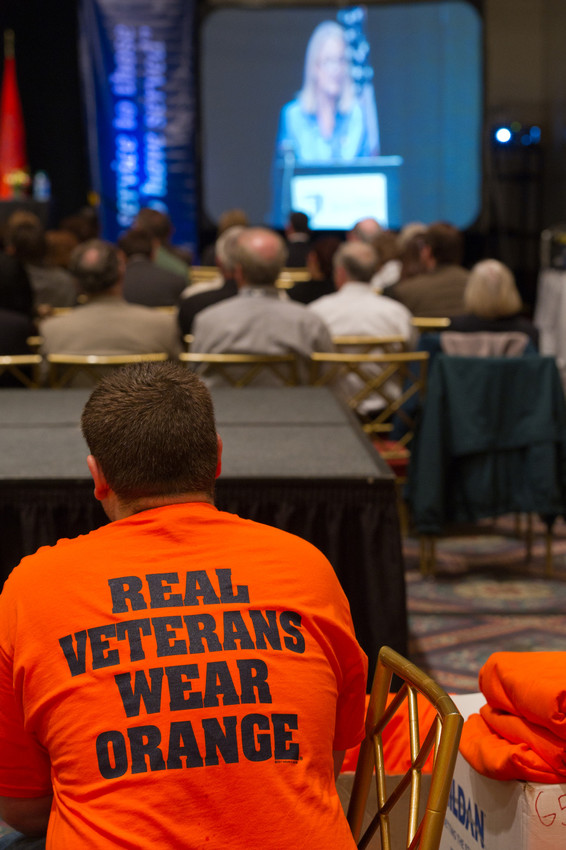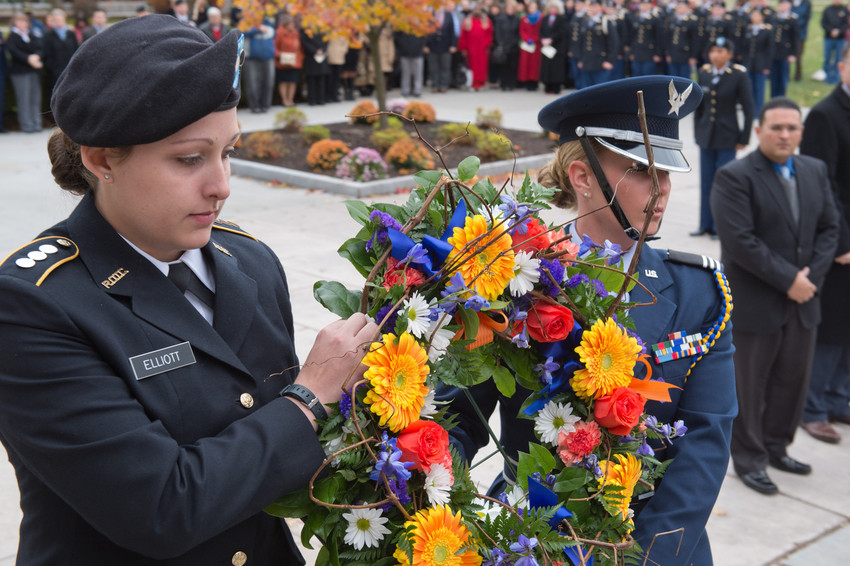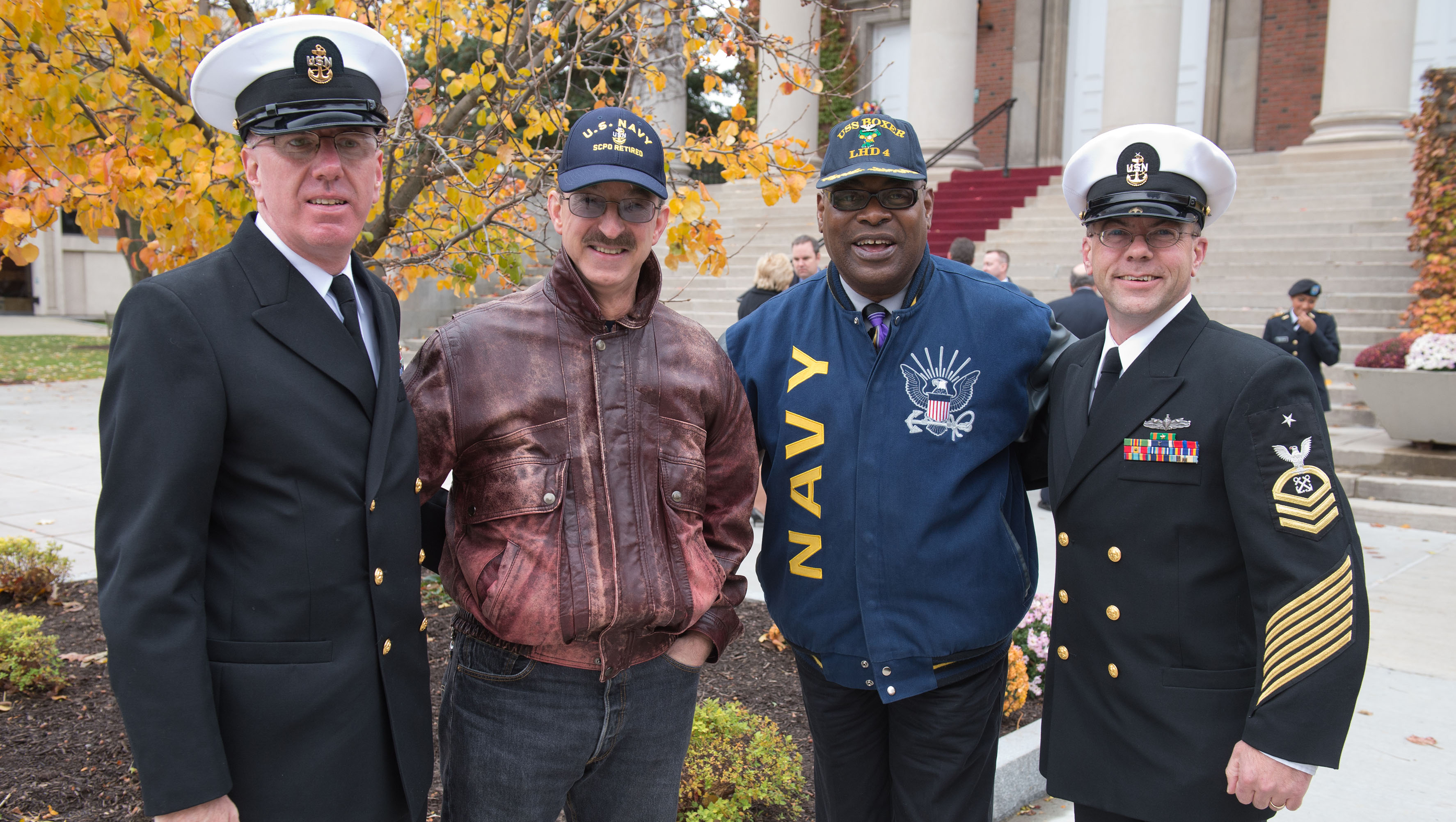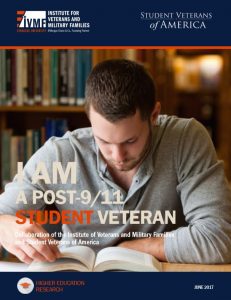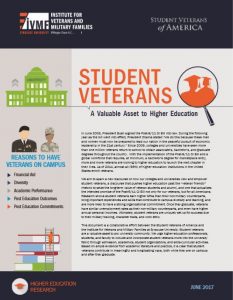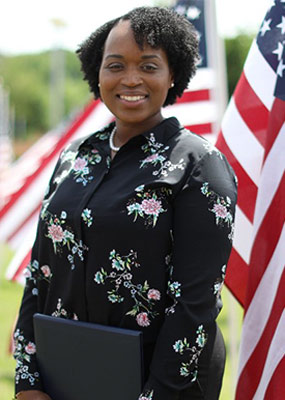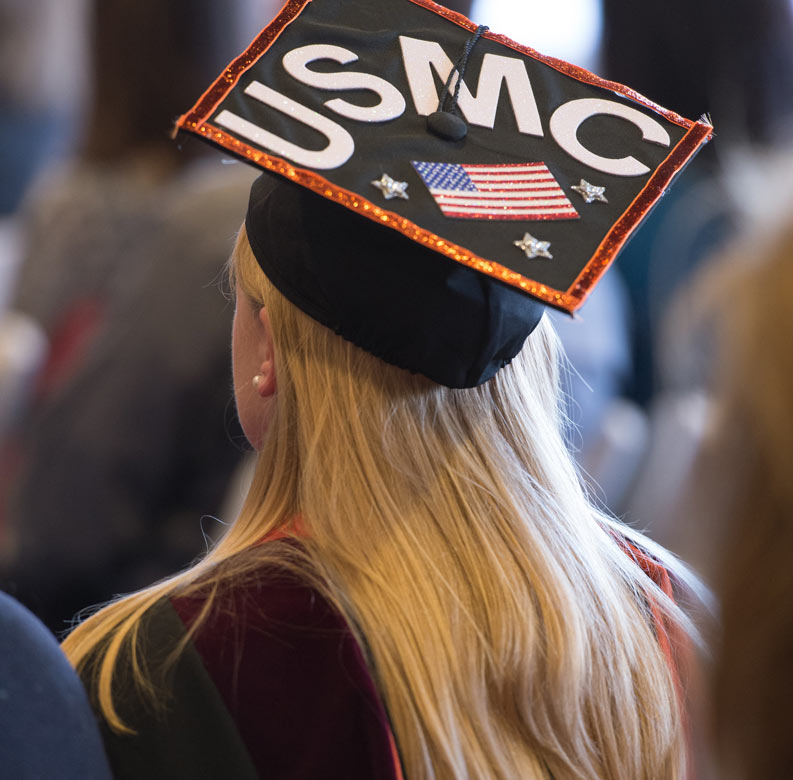
In June 2008, President Bush signed the Post-9/11 GI Bill into law to expand educational benefits for military veterans. As the bill went into effect the following year, President Obama proclaimed/explained, “We do this because these men and women must now be prepared to lead our nation in the peaceful pursuit of economic leadership in the 21st century.”

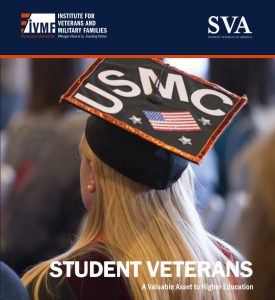
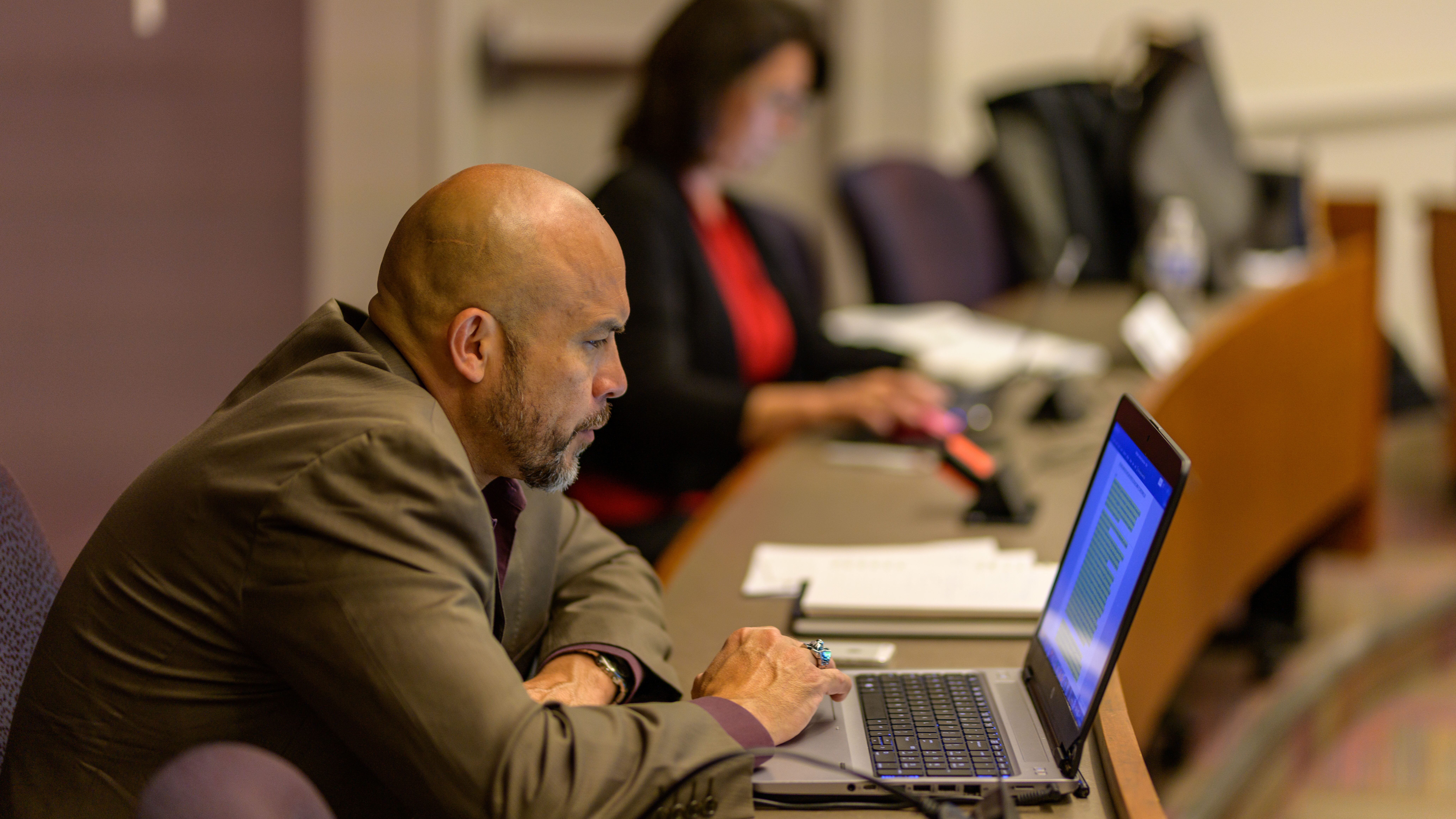
 that undermines college preparedness, a body of research indicates that veterans are unmatched in their resilience, perseverance, and commitment,23 traits that confer an educational advantage. Many are particularly attracted to STEM disciplines and exhibit strong aptitude coupled with relevant practical and applied skills (43%) in these areas24 as a direct result of military training. Traits of leadership, achievement, and high-level performance are the norm for service members and veterans. These characteristics not only endure post-military but are also carried into the academic setting,25 especially when an institution affirms the value that student veterans add to campus life through their experiences, leadership, engagement, and performance.
that undermines college preparedness, a body of research indicates that veterans are unmatched in their resilience, perseverance, and commitment,23 traits that confer an educational advantage. Many are particularly attracted to STEM disciplines and exhibit strong aptitude coupled with relevant practical and applied skills (43%) in these areas24 as a direct result of military training. Traits of leadership, achievement, and high-level performance are the norm for service members and veterans. These characteristics not only endure post-military but are also carried into the academic setting,25 especially when an institution affirms the value that student veterans add to campus life through their experiences, leadership, engagement, and performance.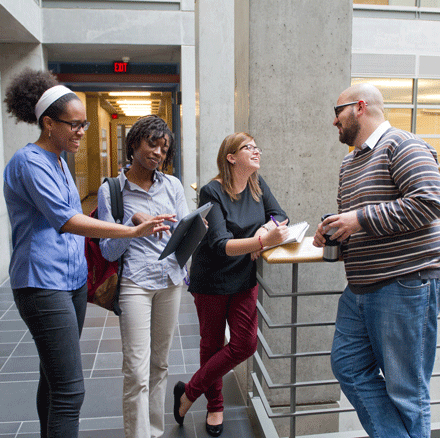
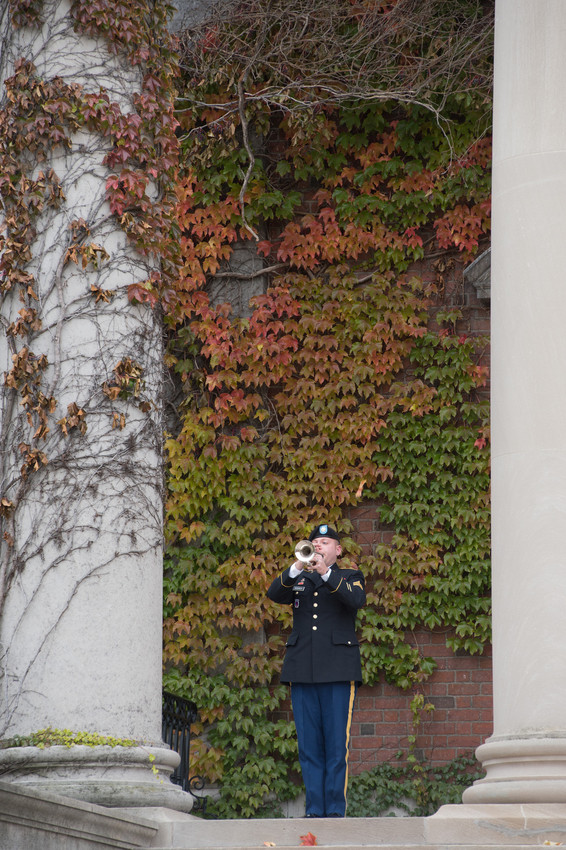 Many historians affirm that the original GI Bill—the Servicemen’s Readjustment Act of 1944—is one of the most significant legislative acts in our history. Following World War II, it empowered more than 8 million veterans to pursue higher education upon leaving military service. Among that group were 3 Presidents of the United States, 3 Supreme Court justices, 14 Nobel Prize winners, 24 Pulitzer Prize winners, 91,000 scientists, 67,000 doctors, 450,000 engineers, and countless other members of what has been famously referred to as the “Greatest Generation.”44 Unquestionably, the Servicemen’s Readjustment Act of 1944 has transformed the lives of millions of veterans and has steadily granted a surplus of benefits for those aspiring toward higher education.45 Since the World War II Era, the Bill has undergone several modifications from the Korean War Era Bill of 1952 to the Montgomery GI Bill of 1984 – up to the most current Veterans Educational Assistance Act (Post-9/11 GI Bill), passed into law on August 1, 2009.46 Through these periods, student veterans have reaped abundant financial rewards and continue to profit from incentives that assist them in completing their post-secondary degrees. A new law referred to as the “Forever GI Bill,” was signed into law in 2017 and removed the expiration date for GI Bill benefits, allowing veterans who separated from the military after January 1, 2013 the ability to use their benefits at any point during their lives.47 All military members who have served a minimum of 90 days of aggregate active duty and were honorably discharged after September 10, 2001, including those with or without a service-connected disability, are entitled to these benefits.48 An annual book stipend up to $1000, monthly housing allowance, and up to the full amount of tuition costs may be covered as well. Advancing one’s education not only assists those transitioning back to the workforce but also has further implications for alumni loyalty and financial giving.
Many historians affirm that the original GI Bill—the Servicemen’s Readjustment Act of 1944—is one of the most significant legislative acts in our history. Following World War II, it empowered more than 8 million veterans to pursue higher education upon leaving military service. Among that group were 3 Presidents of the United States, 3 Supreme Court justices, 14 Nobel Prize winners, 24 Pulitzer Prize winners, 91,000 scientists, 67,000 doctors, 450,000 engineers, and countless other members of what has been famously referred to as the “Greatest Generation.”44 Unquestionably, the Servicemen’s Readjustment Act of 1944 has transformed the lives of millions of veterans and has steadily granted a surplus of benefits for those aspiring toward higher education.45 Since the World War II Era, the Bill has undergone several modifications from the Korean War Era Bill of 1952 to the Montgomery GI Bill of 1984 – up to the most current Veterans Educational Assistance Act (Post-9/11 GI Bill), passed into law on August 1, 2009.46 Through these periods, student veterans have reaped abundant financial rewards and continue to profit from incentives that assist them in completing their post-secondary degrees. A new law referred to as the “Forever GI Bill,” was signed into law in 2017 and removed the expiration date for GI Bill benefits, allowing veterans who separated from the military after January 1, 2013 the ability to use their benefits at any point during their lives.47 All military members who have served a minimum of 90 days of aggregate active duty and were honorably discharged after September 10, 2001, including those with or without a service-connected disability, are entitled to these benefits.48 An annual book stipend up to $1000, monthly housing allowance, and up to the full amount of tuition costs may be covered as well. Advancing one’s education not only assists those transitioning back to the workforce but also has further implications for alumni loyalty and financial giving.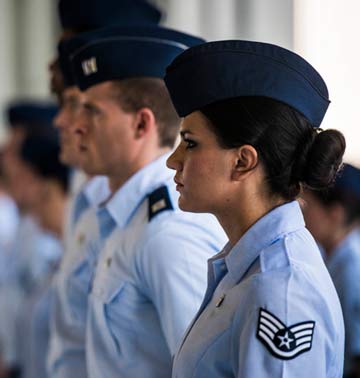
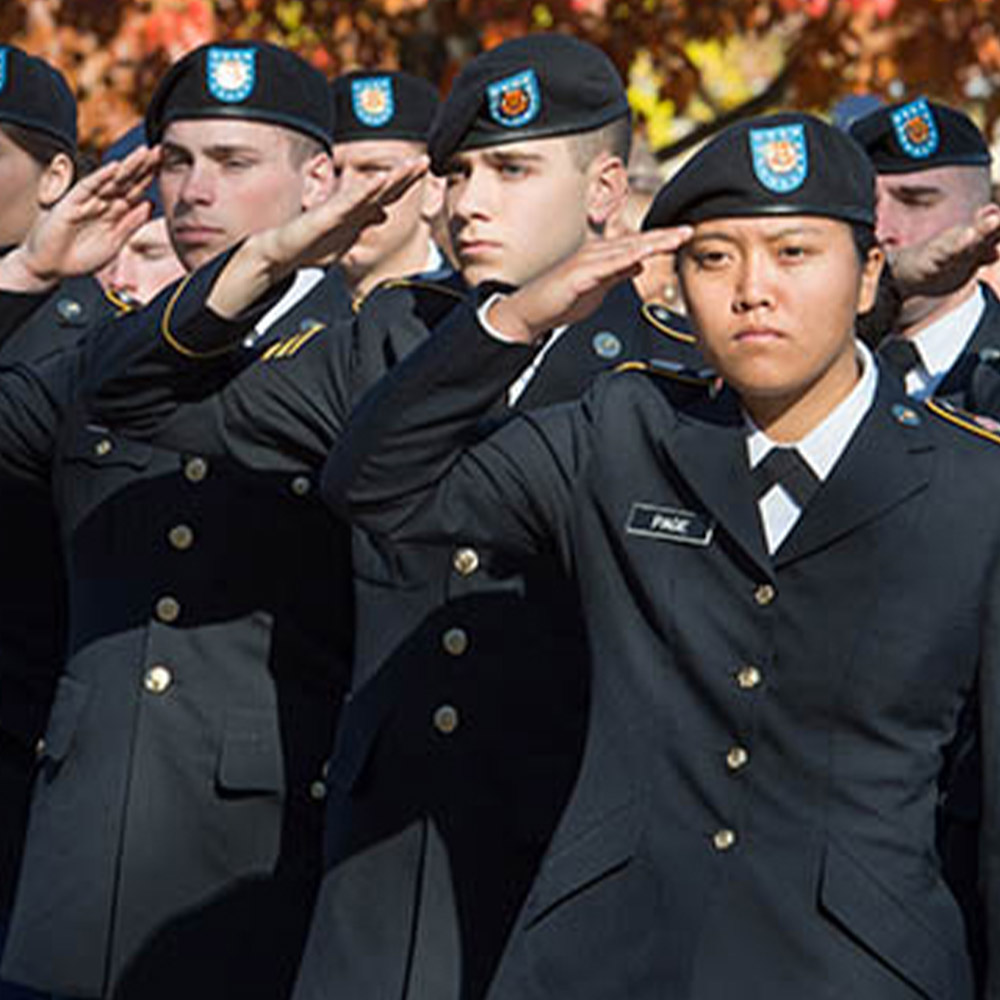
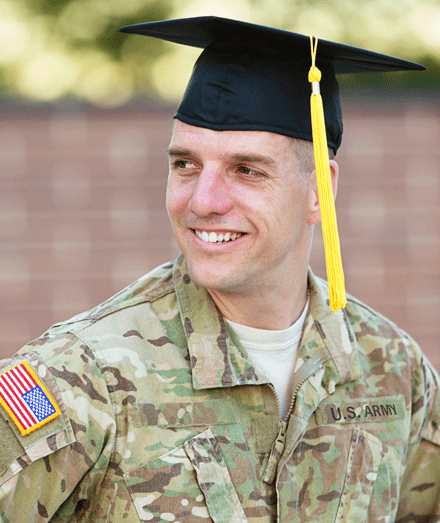 Additionally, student veterans who meet the VA’s requirements for the 100 percent maximum benefit rate of the Post-9/11 GI Bill have the option of participating in the Yellow Ribbon Program at no additional charge.54 As a beneficiary of this supplementary program, the VA will match the selected institution’s dollar for dollar contribution in order to provide funding for educational costs that exceed the Post-9/11 GI Bill threshold, following enrollment verification.55 This option provides the student veteran with greater opportunity and flexibility to meet financial needs while selecting a more expensive private school, out-of-state college, or university. Both full-time and part-time students who qualify at the maximum level may utilize these benefits that are paid directly to the school of choice by the VA. Participating Yellow Ribbon colleges and universities have an agreement with the VA that determines which divisions or schools have slots available for a specified number of students per year and which ones will offer unlimited enrollment.56 A student’s status and school are factored into these decisions. Based on the VA’s current Yellow Ribbon information available, some states have a predominance of slots designated while the majority of states offer unlimited enrollment at participating institutions.57
Additionally, student veterans who meet the VA’s requirements for the 100 percent maximum benefit rate of the Post-9/11 GI Bill have the option of participating in the Yellow Ribbon Program at no additional charge.54 As a beneficiary of this supplementary program, the VA will match the selected institution’s dollar for dollar contribution in order to provide funding for educational costs that exceed the Post-9/11 GI Bill threshold, following enrollment verification.55 This option provides the student veteran with greater opportunity and flexibility to meet financial needs while selecting a more expensive private school, out-of-state college, or university. Both full-time and part-time students who qualify at the maximum level may utilize these benefits that are paid directly to the school of choice by the VA. Participating Yellow Ribbon colleges and universities have an agreement with the VA that determines which divisions or schools have slots available for a specified number of students per year and which ones will offer unlimited enrollment.56 A student’s status and school are factored into these decisions. Based on the VA’s current Yellow Ribbon information available, some states have a predominance of slots designated while the majority of states offer unlimited enrollment at participating institutions.57